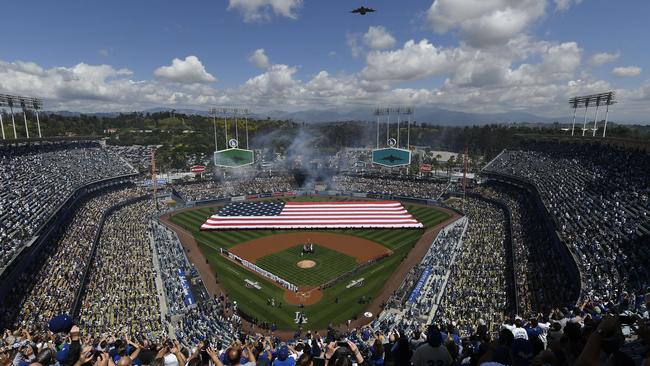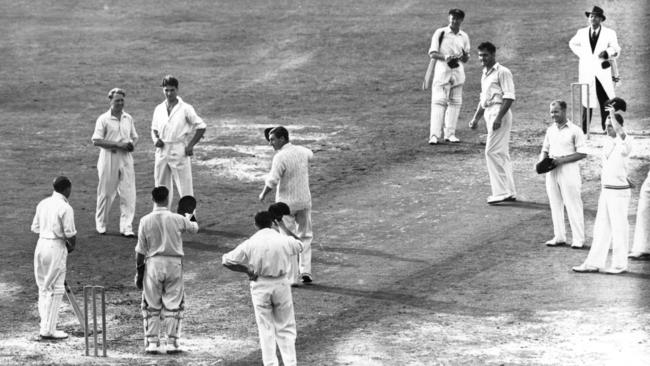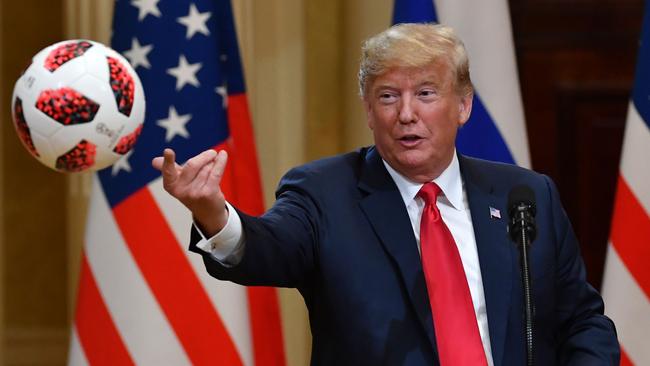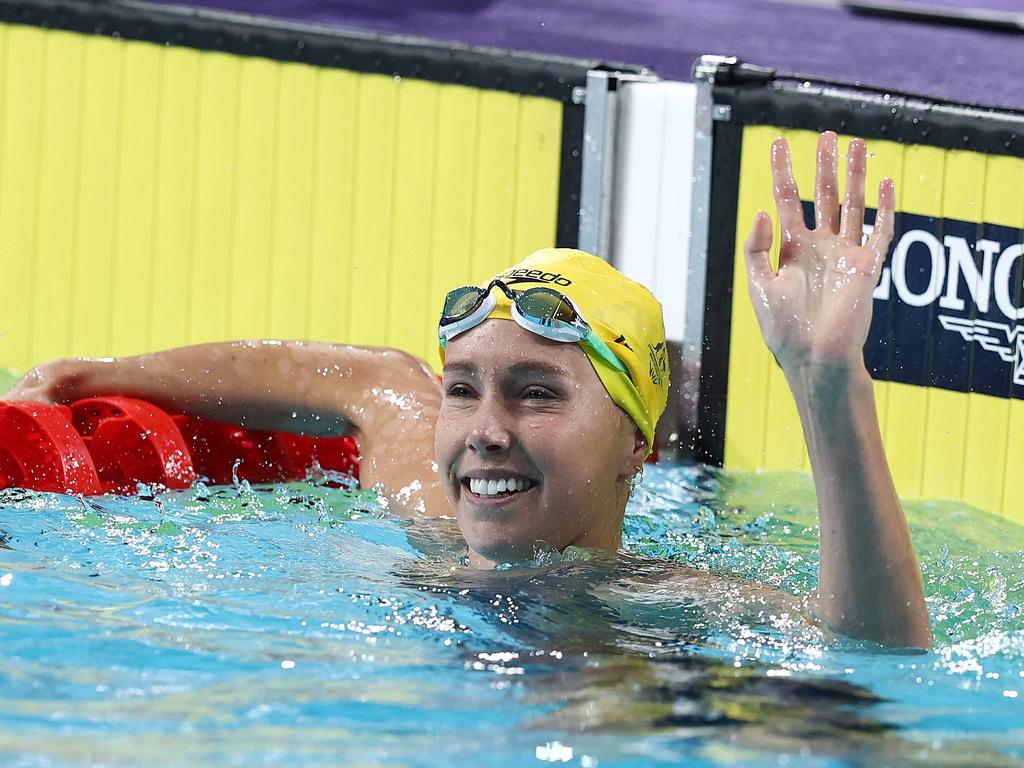
A man who never travelled abroad – he could count on two hands the number of American states he had visited – he had no time for international sport. The rivalries of the football (soccer) World Cup bemused him. Sweden vs. Brazil? Who cares? He told me he’d rather stab out his eyes with a spoon than watch “foreign kickball”.
He followed the Dallas Cowboys (American football), Dallas Mavericks (basketball), and the Oklahoma Sooners (college football) – he was born, raised and went to university in the neighbouring state. He was a somewhere man. He believed in place.
Don was unique in many ways. But he had a distrust of sport between nations that is enduringly American. While the US could dominate pretty much any sport it wanted, given its size and wealth, it has under-used team sport for nationalistic purposes.
The dullest clash in international football is the Three Lions vs. Team USA (see the 2010 and 2022 World Cups). Ancient enmities have not bred a sporting rivalry. England vs. Germany, on the other hand, is often titanic and dominates the English media for weeks (see 1966 and 1990). Ditto the Anglo-Argentina rivalry (see 1986 and 1998).
No one cares when Americans play international team sport.
Don, like so many of his fellow citizens, found something unAmerican in it. American nationalism does not need validation by beating foreigners on grass. English and Australian nationalisms do. The pinnacle of achievement for an English footballer is to play Germany or Argentina at the World Cup; for an Aussie batsman, to win the Ashes.
But an American baseball player? His goal is to win a “world” series in which teams from only two nations, Canada and the US, compete. An American football player has no foreign field on which to prove himself. When the NFL travels to Frankfurt or Wembley, the spectacle is bizarre. Some very odd non-Americans, in my experience, choose to follow US sports in preference to their own indigenous alternatives. They are almost as weird as people who love no sport at all.
The Ryder Cup is too infrequent and overhyped to count. It produces a confected nationalism against a non-nation: a team from Europe. The Olympics don’t count either. Americans took them seriously in the Cold War and invested in beating the USSR. Gold medals bolstered American nationalism. The end of the Cold War, however, led to a downgrading of the games in American eyes. The worst Olympics in history was held in Atlanta, Georgia, in 1996. They just stopped caring.

Why is American team sport so isolationist? One answer is how different structurally US sports are from that of other nations. Outcomes are much harder to control in the international arena. Every major sporting league in the US is rigged, so no team can dominate for too long. The weakest teams in one season, under the draft system, for example, get first pick of the best new players to boost them in the next season.
It is a form of sporting welfarism that does not exist in international sport. National leagues, like the English Premier League, that provide players to international teams, all use promotion and relegation to reward and punish performance. The concept is alien to Americans.
Another explanation is how unexportable US sports have proved. India has used an English game to assert its nationalism. The West Indies, Pakistan, South Africa and, of course, Australia love cricket as a way of sticking it to their former colonial masters.
The American empire has produced no equivalent. Despite the huge wealth of the NFL, NBA, and MLB, no US ally takes these sports seriously. In Australia, basketball is dwarfed as a spectator sport by Aussie rules and rugby league. Even Japan, a nation remade by US occupation, would choose to win the soccer World Cup than have a Japanese-based franchise play Major League Baseball.
But the most powerful explanation is the one most often missed: sporting insularity reflects and contributes to the success of the American melting-pot. The assimilation of immigrants across 250 years has come at the price of international sporting mediocrity.
Three German Americans, in different ways, help us explain this: Henry Kissinger, Donald Trump and my father-in-law.
Henry Kissinger was one of very few American leaders who liked soccer. Kissinger, an émigré from Nazi Germany in his teens, saw in European football an arena where power counts. Wealthy clubs rule the roost over poorer ones. This free market is cutthroat, ruthless and unmediated by meaningful regulation that would make it more equitable.

Trump, the paternal grandson of a German immigrant, is drawn to soccer for similar reasons. Though he disdains the European Union – progressive free-loaders – he loves its football leagues – where might makes right. If only the US could embrace football, America’s huge demographic and resource advantages would make it a soccer-superpower. Kissinger and Trump thought soccer would be a boon to American nationalism. This has not happened and is unlikely to. My father-in-law is the reason why.
Don reviled international sport because it obliged him to contemplate and rank his identities. Of German extraction, he wanted nothing to do with Die Mannschaft. He was an American, first and last (and Texan by the grace of God). An old-world sport which asked him to choose between an ethnic identity (Germany) and a political loyalty (America), he had no truck with.
Variations of Don’s position across the US population explain why international team sport is considered so inferior to national sporting codes. Many Latinos have a near religious reverence for soccer. The genius of the American experiment in mass immigration is that this loyalty is rarely tested in a match between a Latin American nation and the US.
If international team sport had the same resonance as it does in England or Poland, Mexican Americans would face a loyalty test each time their nations met. Because this match-up barely registers, the test is not posed. America does not stop when the US plays Mexico. The 35.9 million Americans who claimed Mexican heritage (in the 2020 census) can support either/both/neither with little consequence for their hyphenated identity.

The primacy of football (in England) and cricket (in Australia) makes split national loyalties harder to hold. Not impossible, but harder. A test of cultural assimilation in both is whether the newly arrived, and certainly eventually their children, barrack for their new national team or their old. That test is not posed in the US because international team sport has such little socio-cultural purchase.
The US Women’s National Team, the most successful women’s soccer team in the world (winning four World Cups), confirms this thesis. Without Cold War nationalism, the women’s team, as the 2023 World Cup in Australia/New Zealand revealed, has become a vehicle for a woke, anti-Americanism. This is another reason why so many Americans distrust soccer. It is a sport of a Europhilic elite: progressivism in two halves with insufficient ad breaks and low scoring. It is unAmerican.
It is paradoxical, therefore, that the progressive, anti-American finger-wagging of the women’s game has become by far the most imperial and capable of export. While the rest of the world has demurred from adopting gridiron and baseball, major sporting bodies like the EPL and Cricket Australia have been taking the knee in obedience to the identity politics agenda that is currently afflicting aspects of US sport – an agenda that gestated on the college campuses that produce so many American athletes.
When 22 kneeling millionaires oblige their working-class audience to embrace left-wing nostrums, on a cold night in Leicester or windy morning in Perth, there is evidence of a new form of American cultural imperialism at work. What US sport could not conquer in its forms and passions, it has in its ideological packaging.

But I remain optimistic. This fad will pass. The enduring popularity of American sport lies not in how it elicits shame but in how it reinforces national character. The progressive seizure is partial and temporary. A nation as diverse and fractious as the US has found in its sport a source of unity and patriotism.
It is no accident that the Star-Spangled Banner is sung, with genuine emotion, at the beginning of sports matches, large and small. It remains a more powerful welcome to country than anything we have in Australia.
There are many reasons the US remains the number one destination of migrants seeking a better life. The one we miss is possibly one of the most important: American sport. Its localism rather than its internationalism makes it a vehicle for social harmony, cultural inclusion and racial equality.
In a polarised nation, these are at a premium. Don, my father-in-law, understood this. Go Rangers!
Timothy J. Lynch is professor of American politics at the University of Melbourne.








My father-in-law died in August. Two months later, his beloved Texas Rangers won, for the first time, the baseball World Series. American sport was how I bonded with Don. It was also the source of our longest argument: why didn’t he take international sport seriously?